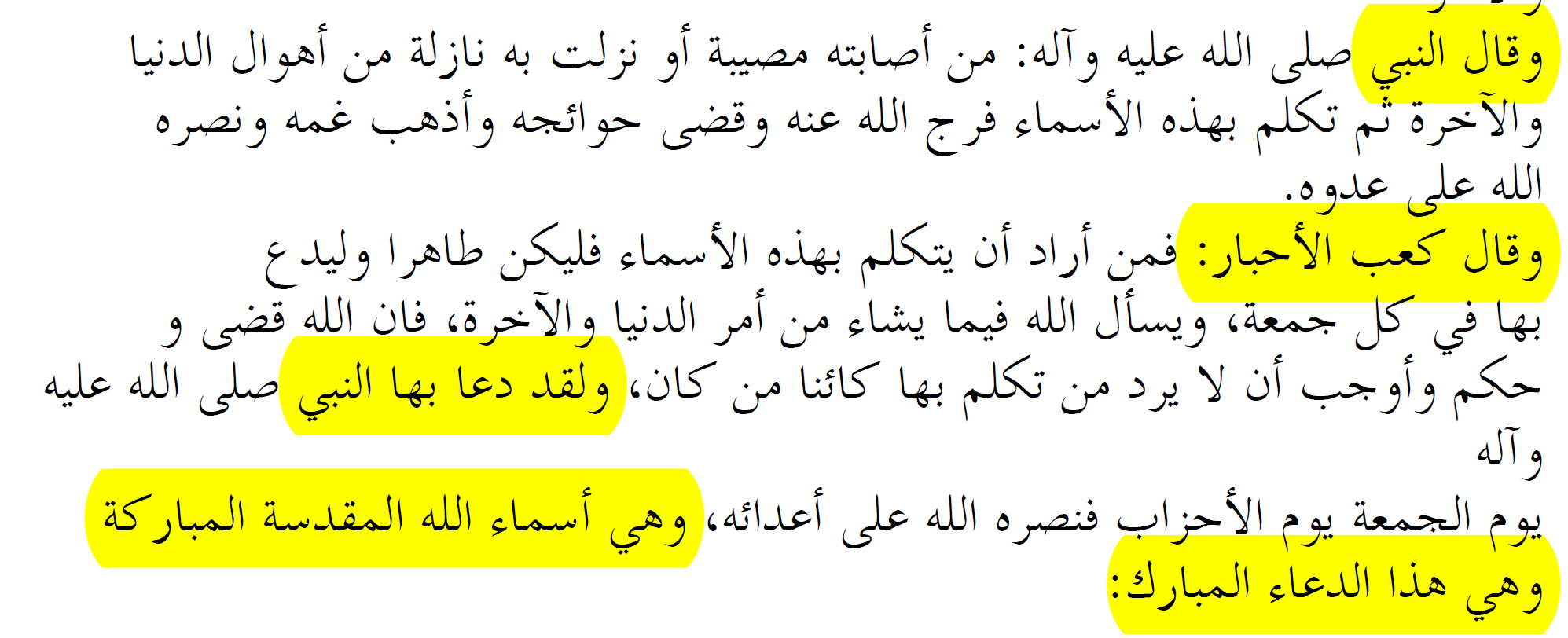Ka`b al-Ahbar (d. c. 32/651) and the word Baha' in the Tawrat (Hebrew Bible)
and a Supplication of the Prophet Muhammad utilizing the al-ism al-a`zam (Mightiest Name of God).

Abu Ishaq ibn Mati` ibn Haysu, Ka`b al-Ahbar (d. c. 32/ 651)
A statement of the Yemeni Jewish convert to Islam named Abu Ishaq ibn Mati` ibn Haysu, Ka`b al-Ahbar (d. c. 32/ 651) is cited in the volume 87 (mostly consisting of Shi`i devotional writings) of the Bihar al-anwar of Muhammad Baqir al-Majlisi (d. 1111/1699-1700) which reads as follows:

Ka`b al-Ahbar [d.32/653] said, "I found in the Tawrat [Hebrew Bible] as a result of reciting it once every week (juma`) on a single occasion (marrat wāḥidat) what was something favourable pertaining to Him [God] (qabūl an) [such as His being One] هَيْبَةِ Haiba ("Mysterium Tremendum"; Fearfully Awesome; Majestic); بَهَاءِ Bahā' ("Glory"; "Splendour", "Beauty"); عَظَمَةِ `Azamat ("Grandeur" ; "Exalted"; "Sublime") and Jalāl an ("Illustrious"; "Majestic"; "Glory").
And such was [furthermore used to express] a rank relating to kings-rulers (al-mulūk), mighty leaders (al-`uẓamā’) and high-ranking nobles (al-ashrāf)" (cited Majlisi, Bihar al-anwār2 87:55).
His being One]
[1] هَيْبَةِ = Haiba פ֣חַד = Hebrew Paqad
פ֣חַד
Trans. "Mysterium Tremendum"; "Fearfully Awesome"; "Majestic in Gravitas";
[2] بَهَاءِ Bahā' = Hebrew כָֹּבוד = kābôd כָּבוֹד kābôd. cf. hadar and nogah (cf. Ezekiel 1:XX), etc.
Translation "Glory"; "Splendour", "Beauty"...
[3] عَظَمَةِ = `Azamat
Translation: "Grandeur" ; "Exalted"; "Sublime"
[4] Jalāl an
Translation : "Illustrious"; "Majestic"; "Glory").
ISAIAH 2:10 cited Baha'u'llah in his Lawh-i Shaykh or Lawh-i Ibn-i Dhi'b (Epistle to the son of the Wolf) c, 1891. The Haybat Allah (Awesome Dread of God) and the Baha’ (Glory) of His `Azimat (Majesty)
“Isaiah saith: "The Lord alone shall be exalted in that Day."
Concerning the greatness of the Revelation He saith:
مِنْ أَمَامِ هَيْبَةِ الرَّبِّ وَمِنْ بَهَاءِ عَظَمَتِهِ
"Enter into the rock (al-sakhra), and hide thee in the dust (al-turab), for the ַּפ֣חַד fear [awesome terror] of the Lord (haybat Allah), and for the glory [וּמֵהֲדַ֖ר] of His majesty (Baha’ `azimati-hi).“ (Isaiah 2:10). ESW:146.
The Aramaic version of the Story/Sayings of Ahiqar (Ar. Haiqar)… 6th cent. BCE. Cf. The Sage Luqman
The Aramaic Y-Q-R and Hebrew K-V-D Kavod
TDOT VII:13 “Instead of kbd Aramaic usually uses



